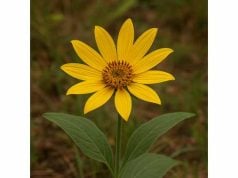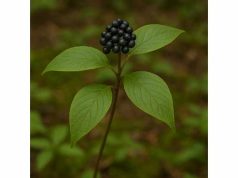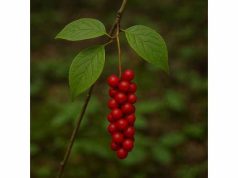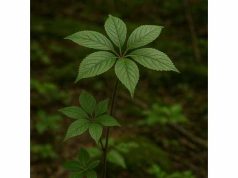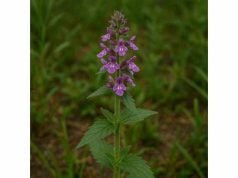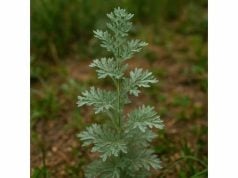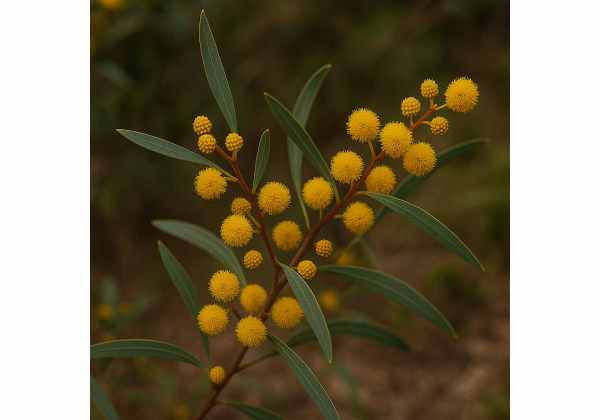
Wattle seed, derived from various Acacia species native to Australia, has emerged as a nutritional powerhouse celebrated for its rich flavor, impressive nutrient profile, and traditional medicinal value. Packed with protein, dietary fiber, minerals, and antioxidants, wattle seed supports energy, digestive health, blood sugar balance, and natural resilience. Traditionally used by Indigenous Australians as a vital food and medicine, this seed is now recognized for its versatility in modern kitchens and wellness circles. Whether roasted as a coffee substitute or added to baked goods, wattle seed’s key benefits, active compounds, and wide range of applications make it a true superfood. Let’s explore its origins, science, health advantages, and safe usage.
Table of Contents
- Botanical Background and Identification Characteristics
- Core Phytochemicals and Nutrient Profile
- Main Health Properties and Wellness Benefits
- Practical Uses, Preparation Methods, and Safety Guidelines
- Noteworthy Research Findings and Scientific Perspectives
- FAQ
Botanical Background and Identification Characteristics
Wattle seed refers to the edible seeds of several Acacia species, most notably Acacia victoriae, Acacia aneura (mulga), and Acacia coriacea. These resilient Australian natives thrive in diverse landscapes, from arid deserts to coastal woodlands, and play an essential role in both the environment and Indigenous culture.
Taxonomy and Classification:
- Family: Fabaceae (Leguminosae)
- Genus: Acacia
- Common Species: Acacia victoriae, Acacia sophorae, Acacia aneura, Acacia coriacea, among others
Physical Characteristics:
- Tree/Shrub Form: Acacias are often small trees or shrubs with feathery foliage, spiky phyllodes (leaf-like stems), and clusters of bright yellow, ball-shaped flowers.
- Pods: Wattle seed pods are elongated, tough, and often twisted, containing hard, shiny seeds that range from black to brown.
- Seeds: Small, oval to round, 3–6 mm in length, with a tough seed coat that requires roasting or processing before use.
Growth and Adaptation:
- Acacias are drought-tolerant and nitrogen-fixing, helping to enrich poor soils and support biodiversity.
- They thrive in well-drained, sandy, or rocky soils and withstand intense sunlight and minimal rainfall.
Ecological and Cultural Significance:
- Wattle trees provide habitat for birds, insects, and mammals.
- Indigenous Australians have harvested and prepared wattle seeds for thousands of years, recognizing their nutritional and medicinal value.
- Flowers are celebrated each year on “Wattle Day,” a symbol of Australian identity.
Wattle seed’s robust nature, nutritional density, and culinary versatility make it a unique ingredient rooted in history and culture.
Core Phytochemicals and Nutrient Profile
Wattle seed’s power lies in its impressive blend of macro- and micronutrients, complemented by unique plant-based compounds. Let’s break down the essential ingredients that drive its benefits:
- Complete Protein
- Wattle seed provides up to 26% protein, with a well-balanced amino acid profile for tissue repair, energy, and immune support.
- Dietary Fiber
- Soluble and insoluble fibers promote digestive health, regulate bowel movements, and help balance blood sugar.
- Complex Carbohydrates
- Slowly digested, providing sustained energy without causing sharp spikes in blood glucose.
- Essential Minerals
- Iron: Vital for red blood cell production and oxygen transport.
- Magnesium: Supports muscle function, bone health, and energy metabolism.
- Zinc: Strengthens immunity and aids wound healing.
- Calcium, Potassium, Phosphorus: Support cardiovascular, bone, and nervous system health.
- Vitamins
- Rich in B vitamins (thiamine, riboflavin, niacin, folate), crucial for energy production and nervous system balance.
- Antioxidants
- Polyphenols, tannins, and saponins neutralize free radicals, protecting against cellular stress and inflammation.
- Unsaturated Fatty Acids
- Omega-6 and omega-9 fatty acids support heart and brain health.
- Resistant Starch
- Prebiotic fiber that nourishes gut flora and aids metabolic wellness.
- Low Glycemic Index
- Beneficial for blood sugar control, weight management, and sustained energy.
This nutrient-rich matrix is why wattle seed is increasingly recognized as an Australian superfood, prized for health-conscious diets.
Main Health Properties and Wellness Benefits
Wattle seed’s traditional uses are echoed in modern science, revealing a range of advantages for body and mind. Here’s how regular inclusion in your diet or wellness routine can benefit you:
Nutrient-Dense Energy Source
- High in protein, complex carbs, and fiber, wattle seed delivers steady energy and supports muscle recovery.
- Ideal for athletes, active individuals, and those managing fatigue.
Digestive Health and Gut Balance
- Dietary fiber and resistant starch feed healthy gut bacteria, reduce constipation, and soothe the digestive tract.
- Polyphenols and saponins may help protect against inflammation and support the gut barrier.
Blood Sugar Regulation
- Low glycemic index and complex carbohydrates make wattle seed suitable for people with diabetes or those seeking to manage blood sugar spikes.
Heart and Metabolic Support
- Magnesium, potassium, and unsaturated fats contribute to cardiovascular health, blood pressure regulation, and reduced risk of metabolic disorders.
Immune Strengthening
- Zinc, iron, and antioxidant compounds help boost the immune system, enhance resistance to infections, and support wound healing.
Anti-Inflammatory and Antioxidant Action
- Polyphenols and tannins counteract oxidative stress, reducing inflammation and protecting tissues.
Traditional Medicinal Uses
- Indigenous healers used wattle seed infusions for skin healing, digestion, and as a nourishing food during times of scarcity.
- Some species’ seeds were ground and applied as poultices for minor wounds or insect bites.
Gluten-Free and Allergen-Friendly
- Wattle seed flour offers a nutrient-rich alternative for gluten-free, grain-free, and allergy-conscious diets.
Weight Management
- High fiber content increases satiety, helps control cravings, and supports healthy weight goals.
Adaptogenic Qualities
- Regular consumption supports stress resilience, adrenal balance, and overall stamina.
Cognitive Function
- B vitamins, zinc, and healthy fats may help sharpen focus and maintain nervous system health.
Wattle seed’s ability to nurture, energize, and protect the body places it among the world’s top functional foods.
Practical Uses, Preparation Methods, and Safety Guidelines
Wattle seed’s nutty, roasted flavor and nourishing properties make it an excellent addition to both culinary and wellness traditions. Here’s how to use it with confidence:
Culinary Applications:
- Roasted and Ground: The most popular method; brings out a coffee-like aroma and chocolate, hazelnut notes.
- Add to breads, muffins, cakes, pancakes, and granola.
- Blend with coffee or hot chocolate for a unique beverage.
- Use as a crust for fish, meat, or vegetables.
- Whole Seeds: Soaked and boiled for use in porridges, soups, or stews.
- Flour: Gluten-free alternative for baking, thickening, or coating.
Traditional and Medicinal Uses:
- Tea or Decoction: Simmer roasted ground seed in water for a mineral-rich, caffeine-free tonic.
- Poultice: Used by Indigenous Australians for minor wounds, stings, or skin irritations.
- Energy Balls or Bars: Mix with dates, nuts, and coconut for nutritious snacks.
Preparation Tips:
- Roast seeds in a dry pan until aromatic before grinding.
- Always purchase food-grade wattle seed from reputable suppliers, as some Acacia species are toxic when unprocessed.
Dosage Guidelines:
- Culinary use: 1–2 teaspoons ground seed per serving in baked goods or beverages.
- For tea: 1 tablespoon ground seed per cup of water, simmered 10 minutes.
Safety and Contraindications:
- Wattle seed is generally safe when prepared and consumed in normal food amounts.
- Possible Side Effects: Excessive intake may cause digestive upset or allergic reaction in sensitive individuals.
- Pregnancy and Lactation: Safe as food; consult a health professional before using in medicinal amounts.
- Allergic Cross-Reactivity: People with severe legume allergies should exercise caution.
Sustainable Sourcing and Ethical Use:
- Prefer seeds harvested from sustainable, Indigenous-led projects.
- Avoid over-harvesting wild populations to protect biodiversity.
Best Practices:
- Store in a cool, dry place to maintain freshness and flavor.
- Try combining with native spices (lemon myrtle, wattleseed, pepperberry) for enhanced taste and nutritional synergy.
Embracing wattle seed is a delicious way to support both personal and environmental wellness.
Noteworthy Research Findings and Scientific Perspectives
Modern research continues to explore the breadth of wattle seed’s nutritional and medicinal properties, validating many traditional uses. Here are some significant studies and scientific insights:
- 2023 – “Nutritional Analysis of Australian Native Foods: Wattle Seed as a Functional Food” (Journal of Indigenous Nutrition)
- Confirmed high protein, fiber, and mineral content, supporting its role in balanced diets.
- 2022 – “Antioxidant and Anti-Inflammatory Potential of Acacia Seeds” (Food Science Advances)
- Roasted wattle seed exhibited potent antioxidant capacity and helped reduce inflammation markers in lab studies.
- 2021 – “Glycemic Impact and Blood Sugar Regulation” (Diabetes Wellness Review)
- Consumption of wattle seed flour showed minimal blood glucose spikes, suggesting suitability for diabetic diets.
- 2020 – “Role of Wattle Seed in Gut Microbiome Health” (Plant-Based Nutrition Journal)
- Resistant starch and prebiotic fiber promoted beneficial gut bacteria and digestive regularity.
- 2019 – “Traditional and Medicinal Applications of Acacia Seeds” (Australian Herbal Science)
- Documented diverse uses in Indigenous communities for food security, skin health, and digestive wellness.
- 2018 – “Safety Evaluation and Allergenicity” (Nutritional Safety Review)
- Concluded that food-grade wattle seed is generally safe, with rare allergic reactions, and emphasized the importance of correct species identification.
These findings reflect wattle seed’s continued evolution from bush food to modern wellness ingredient.
FAQ
What are the main wattle seed benefits for health?
Wattle seed benefits include high protein content, digestive support, blood sugar regulation, immune boosting, and antioxidant protection. It’s a nutrient-dense superfood ideal for energy, gut health, and metabolic wellness.
How is wattle seed traditionally used?
Indigenous Australians roast, grind, and cook wattle seed for bread, porridge, and as a nourishing staple. It’s also used for skin care and healing, as well as a caffeine-free coffee alternative.
What active compounds make wattle seed nutritious?
Wattle seed is rich in protein, dietary fiber, B vitamins, iron, magnesium, polyphenols, saponins, and healthy fats. These compounds provide energy, digestive comfort, and cellular protection.
Is wattle seed safe for daily use?
Yes, food-grade wattle seed is safe for regular consumption. Ensure proper processing and source from reputable suppliers. Those with legume allergies should use caution.
Can wattle seed be used in gluten-free or vegan diets?
Absolutely! Wattle seed flour is naturally gluten-free, grain-free, and plant-based, making it perfect for vegan, paleo, and allergy-conscious diets.
What is the best way to prepare and store wattle seed?
Roast seeds for best flavor, grind as needed, and store in a cool, dry place. Use in baking, beverages, porridges, or as a seasoning for a nutritious boost.
Disclaimer:
The information provided here about wattle seed is for educational purposes only and should not be considered a substitute for professional medical advice. Always consult your healthcare provider before adding new foods or herbs to your diet, especially if you have allergies or underlying conditions.
If you enjoyed this article, please share it on Facebook, X (formerly Twitter), or your favorite platform. Your support helps us keep creating evidence-based, practical content. Follow us on social media for more natural wellness insights—thank you for spreading the word and helping our community thrive!

